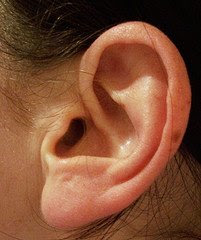 I just wrote a note to someone about...well, “life.” Specifically, I wrote about a current situation, debating the pros and cons about how to proceed in a certain matter, and I wrote the phrase:
I just wrote a note to someone about...well, “life.” Specifically, I wrote about a current situation, debating the pros and cons about how to proceed in a certain matter, and I wrote the phrase:
“If I fall back on my training...”
That made me take pause –as I had to consider what “my training” had been.
And that made me think of the book Dune, the science fiction novel by Frank Herbert. In Dune, many of the characters had, from early in their lives, received specialized training, which gave them tools that they used to get what they want, to pursue their various missions, and to cope with whatever life threw their way.
“If I fall back on my training...”
Like the characters in Dune, I’ve been “in training” since the age of 11 –and that training, if we look at it from a certain perspective, was aimed to give me certain skills.
Now the question is: What were those skills supposed to be –and what were they supposed to do for me? Were there certain powers I was supposed to be developing? Was the training for a purpose beyond being able to kick and punch? Beyond fighting? Beyond the development of the obvious physical skills?

These questions lead me to what I am today, what I do, and what our potential is as teachers of the martial arts.
What, for that matter, are the martial arts for? And what is the end result we, collectively, desire out of the work we do with our students? What ideology are we imparting? Do we have a collective “mission?”
“If I fall back on my training...”
Looking back, I think much of my training was haphazard; and if not haphazard, then it was simply –and probably unintentionally –trivialized.
Does a teacher teach his or her student how to read books for the purpose of reading books? Or is to unlock the ideas contained in them?
Likewise, do we, as martial arts teachers, teach the techniques of the martial arts just so that our students can execute technique? Or do we teach what we teach to help our students learn something else hidden within the practice?
Does the physical practice, does the time we spend together, does all the history and strategies and philosophy serve some other purpose than the obvious physical aspects of the martial arts?
How well-defined is our mission? Do we have one?
 Now forget the past. All of these questions lead me, lead us, to what we are doing right now.
Now forget the past. All of these questions lead me, lead us, to what we are doing right now.
How big is our vision?
And tell me, Mr. and Ms. Martial Arts Teacher, what kind of training are you, right now, imparting to the next generation?
When, 30 years from now, one of your students writes the phrase, “When I fall back on my training,” what training will they be thinking of?
Will you have taught them the power of action? The power of education? Of the spoken and written word? The power of perseverance? The power of teamwork? The power of self-discipline of compassion of simplicity of open-mindedness –and the power of love? Or will you have taught them a bunch of exercises?
All of the above speaks of the work you and I are doing today.
We are educators –and so what is the education we are imparting?
My martial arts, that is, the “training” my students may some day “fall back on,” is about developing oneself as a fully engaged, compassionate, cognizant, participative, human being.
The physical training is for fitness –and to train the mind for bigger things. If we are training “warriors,” then it’s up to us to recognize the “war” we are preparing to fight. In my mind the war is not hand-to-hand combat, it is the battle to evolve mentally and spiritually in the model of those men and women in history who have done just that. It is to follow in the footsteps of ________ (list your most spiritually evolved heroes here).
If, indeed, we are someday held accountable; if indeed we are meant to learn something while we hold this form; then the training we give, get, and fall back on should, ideally, prepare us for that purpose.
This is how I am designing my curriculum. This is the intent I have as I prepare my lessons, as I interact with my students, with their parents, with my community, and with the world.
lessons, as I interact with my students, with their parents, with my community, and with the world.
This is my sense of mission.
This is what makes me look for new lessons, for teachers, and for material for my classes. This is what I think about when I call my class to attention –it’s the mission behind all the movement.
This is our " business."
Now you know the motivation behind the UBBT and The 100 and Six Tasks and The Acts of Kindness Program and Take 5 for Education and Alabama and just about everything I do.
If someday you look back on the time (any time) we spent together, involved in any way, you might consider that the purpose behind whatever it is we did was to further “our training.” The training we “fall back upon” when we need it.






